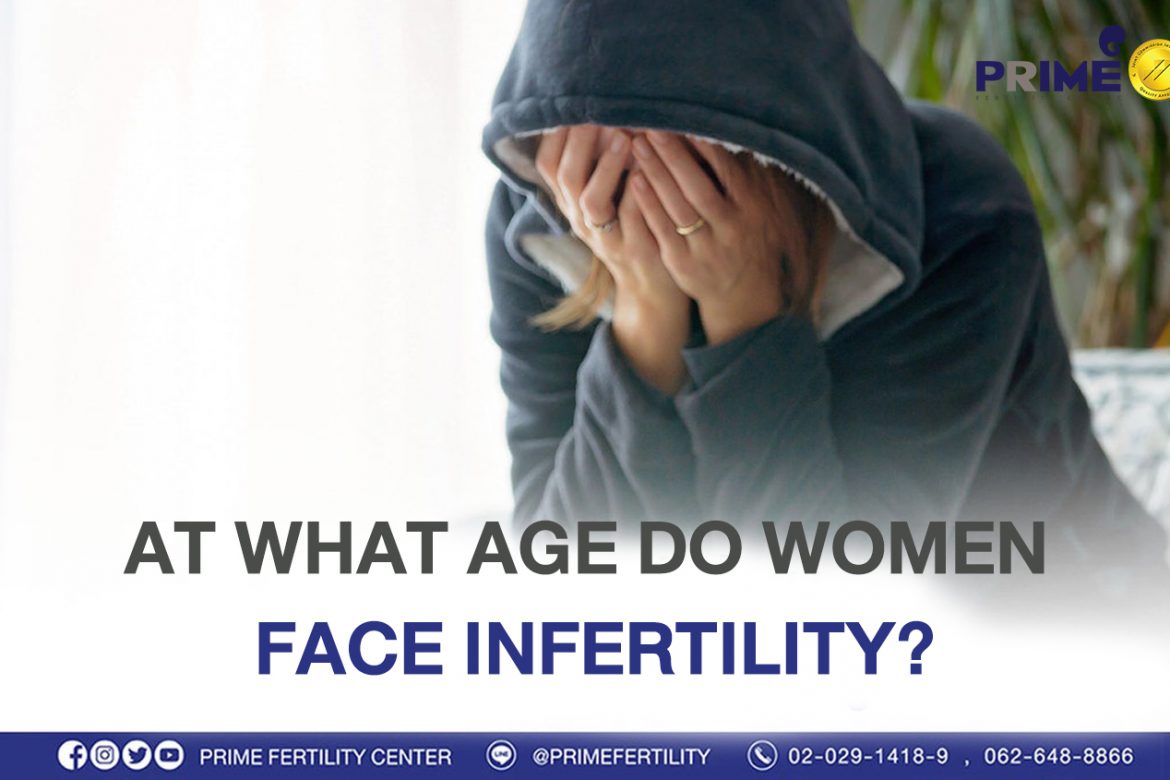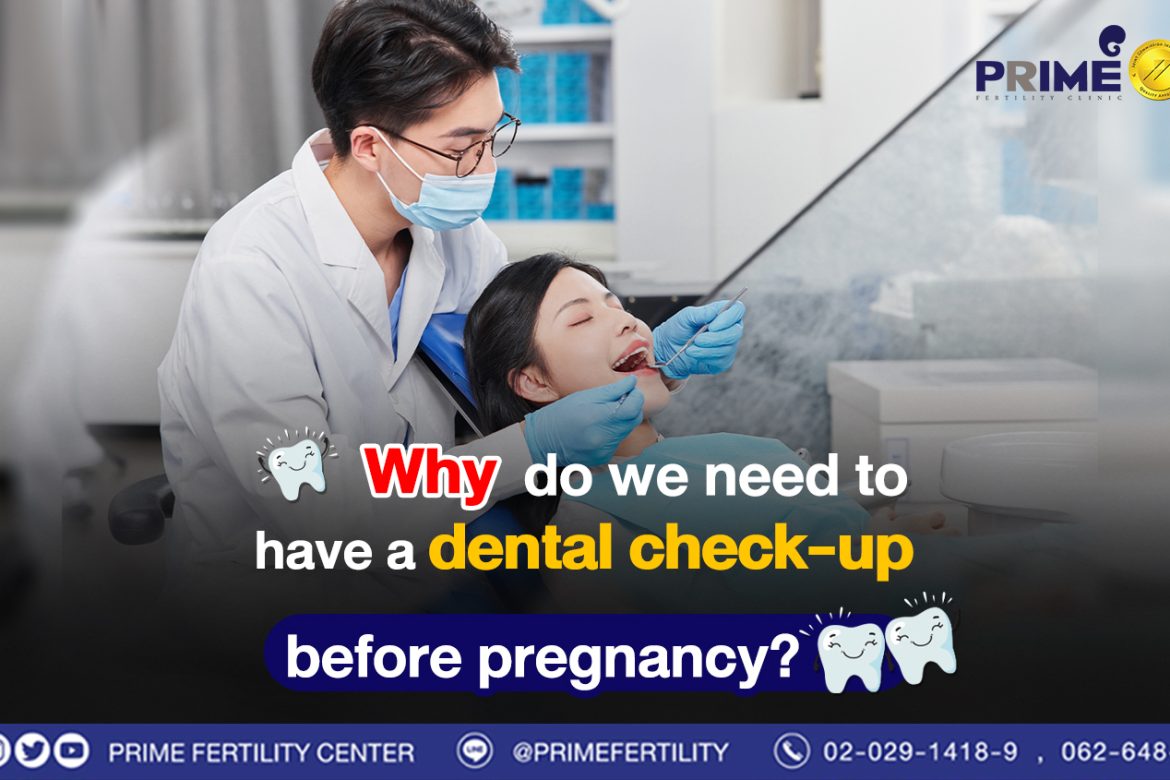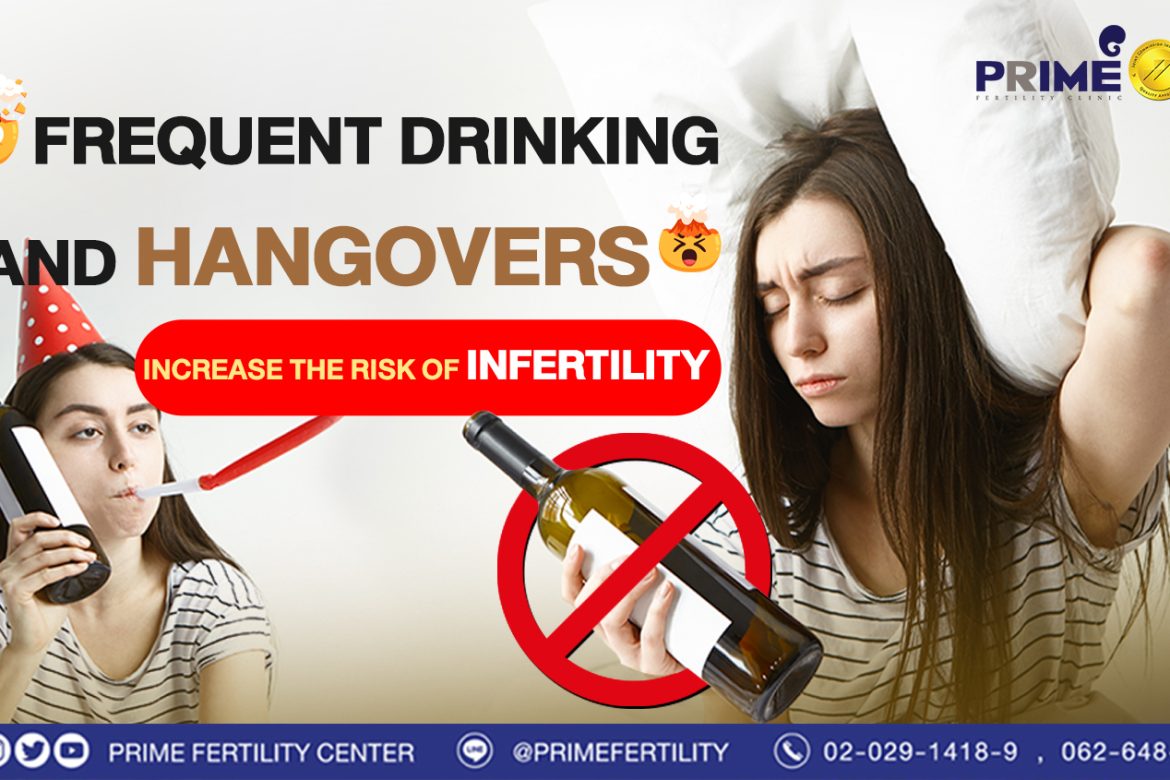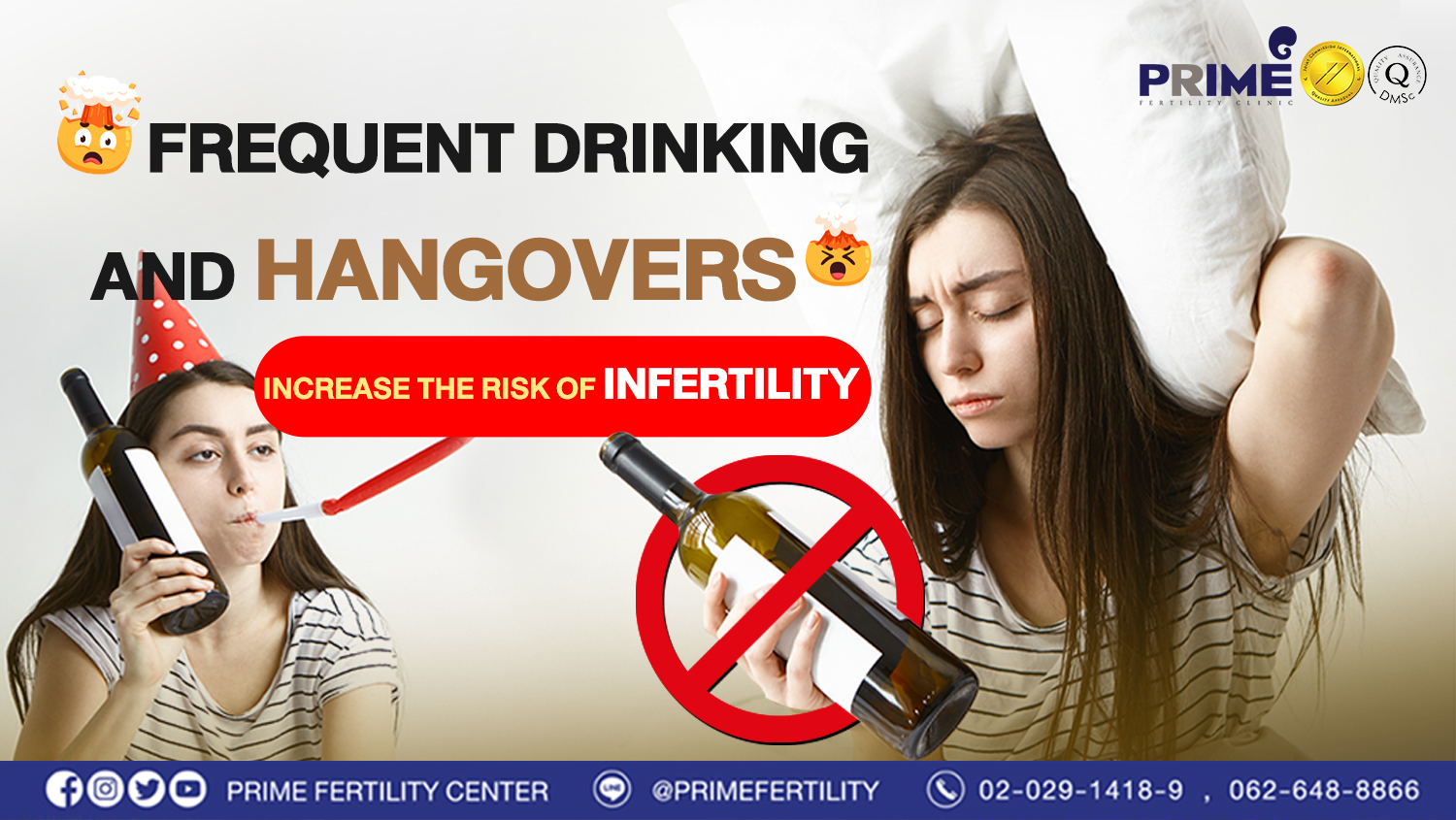If you want a baby, what is the best age and not being risky to be infertile?
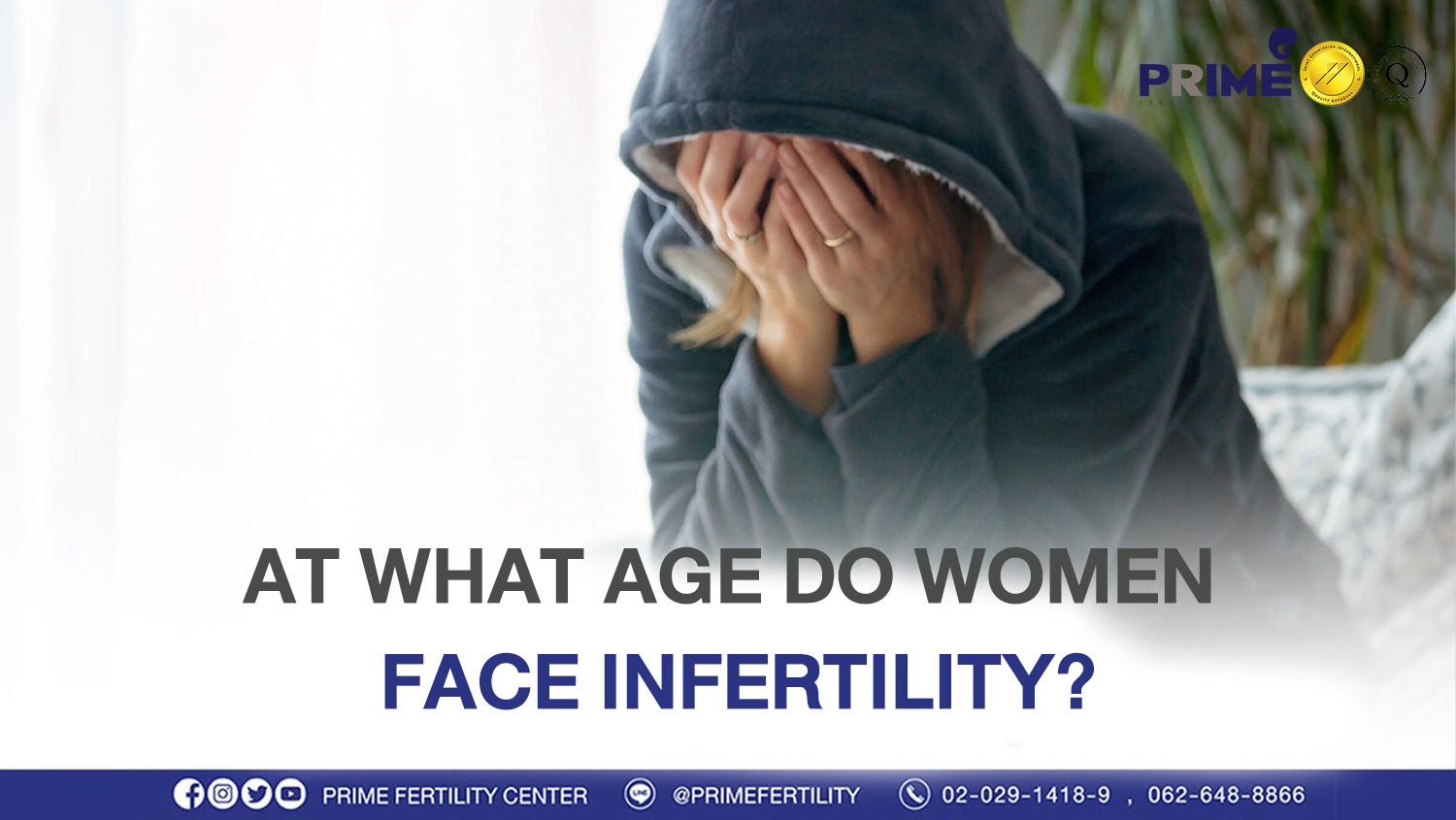
After getting married, several couples plan to have a baby but not every couple will be successful. Some couples may have to spend time to wait until they are ready. For example, working hard to save money for the future pregnancy until the time has passed by and women become infertile due to aging. Some people may have heard that age increase is associated with infertility or risky to mother’s and baby’s health. So, at what age do women face infertility? If you want a baby, this article will show you the answer.
What is human reproductive age that won’t cause infertility?
Female reproductive age starts at the first period and ends when reaching menopause. Average reproductive age is 12 to 51 years old. When women are getting older, the chance of pregnancy gradually decreases. Suitable age for having baby is in late 20s to early 30s. Pregnancy at advance maternal age may be vulnerable for both mothers and babies. Several couples may not be ready to conceive at reproductive age even though they want to. Moreover, health problems can be a factor making pregnancy is impossible. These situations will cause you to become infertile.
What are causes of infertility?
For couples who want a baby, to conceive relying on age may be more difficult due to various factors of infertility. One of them is declined fertility because of aging of both men and women. In each cycle, a woman has limited numbers of egg to ovulate. The ovulated eggs will fertilize with sperm to allow pregnancy. Previously, a woman’s body could produce a huge number of eggs for ovulation. Consequently, some eggs develop and become fully mature for fertilization.
Although fertility is still existing when women are getting older but the chance of pregnancy will decrease and may lead to infertility. This is because the body can’t produce eggs with very good quality. Female fertility drops every year after 30s. The eggs deteriorate in terms of quality and quantity until reaching menopause. Menopause age is during 45 to 55. Women’s period will stop and there will be no longer fertility.
Likewise, men’s sperm will decrease for both quality and quantity because of age increase. The decreased sperm quality by age is linked to infertility or some disorders in a baby, such as autism spectrum disorder, down syndrome, and schizophrenia.
Women at what age may have difficulty having children?
If you are over 35 years old and want to have children. But you still haven’t gotten pregnant after trying for 6 months – 1 year, you may be experiencing infertility problems. Infertility is when a couple is unable to conceive or a woman is unable to conceive for a period of time. There are many causes of infertility in both men and women. The most common cause of infertility in women is related to ovulatory disorders. There are many factors that affect the ovulation cycle, one of them is aging.
Another cause of infertility is endometriosis. This is a disease in which tissue normally found in the uterus grows outside the uterus. Endometriosis can cause menstrual pain. It is considered at least one in three causes of infertility in women. And it is found in women between 30 to 40 years of age, making it a certain age for women who may also face infertility.
In addition, the duration of pregnancy depends on the age of the woman. If you are trying to get pregnant in three months, the chances of success vary depending on age:
- When you’re 25 years old, you have an 18% chance of getting pregnant.
- When you’re 30 years old, you have an 16% chance of getting pregnant.
- When you’re 35 years old, you have an 12% chance of getting pregnant.
- When you’re 40 years old, you have an 7% chance of getting pregnant.
It can be seen that when you get older, the chance of getting pregnant will also be less and may cause a risk of infertility.
The best age to conceive and have a healthy baby is in your late 20s and early 30s. But if you’re not ready to have a baby during this time, there is still a chance that you will be able to have children but before reaching menopause. If you are 35 or older, that may be difficult for you to have children as many reasons mentioned above. Therefore, if you want to have children and are worried that you are at risk of infertility, getting advice from fertility specialist will make you successful in pregnancy. As well as having good health for both you and your child.
Prime Fertility Center, we provide full medical service to treat infertility and help patients to conceive as soon as possible as we understand the meaning of family. With determination of doctors, embryologists, and skillful personnel, as well as modern technology and high-standard equipment, we are ready to offer comprehensive counseling service and thorough medical examination. Our clinic is accredited by international standards and has operated with the most modern technology. As a result, we are trusted by customers all over the country.
Should you be interested in getting fertility consultation, please contact us. | ICSI Bangkok | ICSI Thailand | fertility clinic bangkok
Tel. : 062-648-6688 / 062-648-8866 / 02-029-1418–9
Line : @primefertility
Facebook : Prime Fertility Center
E-mail : info@primefertilitycenter.com
Working Hours
- Open: Monday – Wednesday, Friday and Saturday
Time: 08:00 – 16:00 - Closed: Thursday, Sunday and Public Holidays

